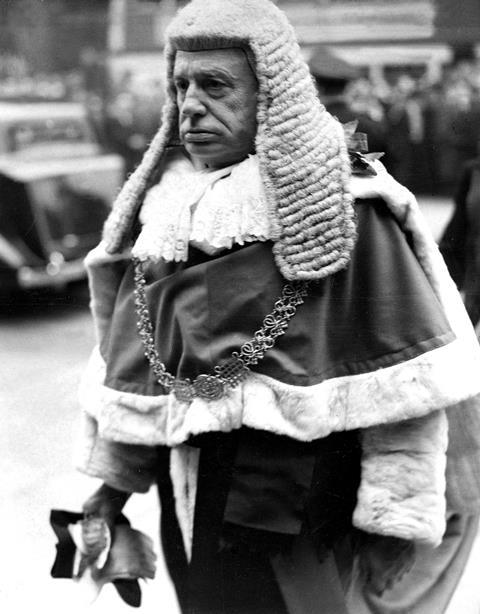When I was seeking (in my book Despotism Renewed? – Lord Hewart Unburied) to rescue Lord Hewart’s reputation from the calumny that he was the worst lord chief justice of all time, I suggested that one candidate for that title ought to be Lord Goddard, lord chief justice from 1946 to 1958. But although a calamitously bad chief justice, Goddard delivered one memorably sensible judgment which I suggest that we would do well to recall.
'Terrorism' is a concept with which we are familiar; but in drafting the Terrorism Act 2000 parliament included action designed to influence the government, and included serious damage to property.
That means that Yvette Cooper was probably within her powers in asking parliament to proscribe Palestine Action; but the actions of that group, while frequently deplorable, are not within the everyday understanding of the concept of terrorism. When I learned of the events at Brize Norton, my reaction was not 'I am terrified' but 'Whatever was the RAF playing at, that a group of peaceniks could hop over the perimeter fence of an operational airbase, walk up to several million pounds’ worth of warplane, and trash it?'
And Palestine Action was also associated with entirely lawful demonstrations against Israel’s actions in Gaza. Proscription has led to some entirely predictable over-reach, exemplified by Jon Farley’s arrest for holding up a copy of a Private Eye cartoon, and Roger Cauthery being refused admission to the Royal Albert Hall for wearing a small lapel pin bearing the Palestinian flag. There have been reports of people being told that displaying the Palestinian flag, or the slogan 'Free Gaza', amounts without more to an expression of support for Palestine Action and is accordingly a criminal offence.
Proscription has also led to an entirely predictable embarrassment for the Metropolitan Police as hundreds of eminently respectable people very publicly hold up placards proclaiming 'I OPPOSE GENOCIDE…' Do you arrest all these people and look faintly ridiculous, or refrain from doing so, implying that the law is meaningless?

Let’s recall the post-war saga of identity cards. These were introduced as an emergency measure at the outbreak of World War 2. The post-war Labour government, an admirable administration but with a marked authoritarian streak, took a conscious decision not to repeal the relevant legislation; and the police routinely demanded the production of identity cards whenever they stopped someone. One Harry Willcock, stopped for speeding, refused 'on principle' to produce his identity card. On his appeal from the inevitable conviction before the magistrates, Lord Goddard said [Willcock v. Muckle [1951] 2 KB 844]:
'Of course, if [the police] are looking for a stolen car or have reason to believe that a particular motorist is engaged in committing a crime, that is one thing, but to demand a national registration identity card from all and sundry, for instance, from a lady who may leave her car outside a shop longer than she should, or some trivial matter of that sort, is wholly unreasonable… [and] tends to turn law-abiding subjects into lawbreakers, which is a most undesirable state of affairs. Further, in this country we have always prided ourselves on the good feeling that exists between the police and the public and such action tends to make the people resentful of the acts of the police and inclines them to obstruct the police instead of to assist them….'
And, though Willcock’s conviction was upheld, he was not ordered to pay costs, and Goddard indicated that any future bench of magistrates obliged to convict a citizen of failing to produce an identity card should grant an absolute discharge. Identity cards were, in fact, scrapped the following year.
Goddard’s words make much sense today, and I suggest that they offer the courts a sensible way to deal with those arrested. Are they publicly expressing support for damaging aircraft or similar crimes? That, pace Goddard, 'is one thing', and anyone publicly expressing support for such activities cannot really complain at being severely dealt with.
Or are those arrested simply expressing in a dramatic fashion the legitimate view that Palestine Action should not have been proscribed, being willing, just as Harry Willcock was, to accept a conviction as the price of principle? If that is what they are doing, the absolute discharge which was recorded against Harry Willcock seems an entirely sensible and proportionate response, and one which avoids so far as possible 'turning law-abiding subjects into lawbreakers'.
Neil Hickman is a retired district judge
This article is now closed for comment.































5 Readers' comments